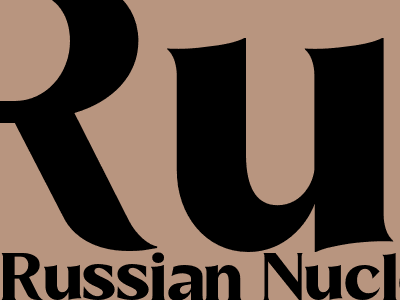
The Russian Nuclear Arsenal: Devastating Power and Global Threat
A Historical Perspective
Russia is a nuclear superpower, possessing the largest nuclear arsenal in the world.
Their nuclear program traces back to the Cold War era, when the Soviet Union sought to match the nuclear capabilities of the United States.
The first Soviet nuclear test occurred in 1949, marking the beginning of a decades-long nuclear arms race between the two superpowers.
Arsenal Strength and Composition
Russia's nuclear arsenal is estimated to include approximately 6,257 nuclear warheads.
These warheads are deployed on a variety of platforms, including intercontinental ballistic missiles (ICBMs), submarine-launched ballistic missiles (SLBMs), and strategic bombers.
Russia also possesses a significant stockpile of tactical nuclear weapons, smaller-yield weapons intended for use in battlefield scenarios.
ICBMs: Intercontinental Reach
Russia's ICBMs can strike targets thousands of miles away with high accuracy.
They are capable of carrying multiple nuclear warheads, each with destructive power equivalent to millions of tons of TNT.
Key ICBM systems include the RS-28 Sarmat and the RS-24 Yars.
SLBMs: Underwater Stealth
Russia's SLBMs are launched from submarines, providing survivability and the ability to strike from concealed positions.
The latest SLBM system is the Bulava, which can carry up to six nuclear warheads.
Submarines equipped with SLBMs patrol the world's oceans, ensuring a constant nuclear deterrent.
Strategic Bombers: Aerial Delivery
Russia's strategic bombers, such as the Tu-160 and Tu-95MS, can carry nuclear weapons over long distances.
They are capable of penetrating enemy air defenses and delivering precision strikes.
Strategic bombers provide a flexible and versatile component of Russia's nuclear arsenal.
Nuclear Doctrine and Policy
Russia's nuclear doctrine is based on the principle of "no first use," meaning Russia will not initiate a nuclear war.
However, it reserves the right to use nuclear weapons in response to an attack on Russia or its allies with conventional or nuclear weapons.
Russia's nuclear policy is closely tied to its national security interests and its relationship with the United States.
Arms Control and Disarmament
Russia has been involved in various arms control and disarmament negotiations with the United States and other nuclear powers.
These negotiations aim to reduce nuclear stockpiles, prevent nuclear proliferation, and promote nuclear safety.
Key agreements include the New START Treaty and the Intermediate-Range Nuclear Forces (INF) Treaty.